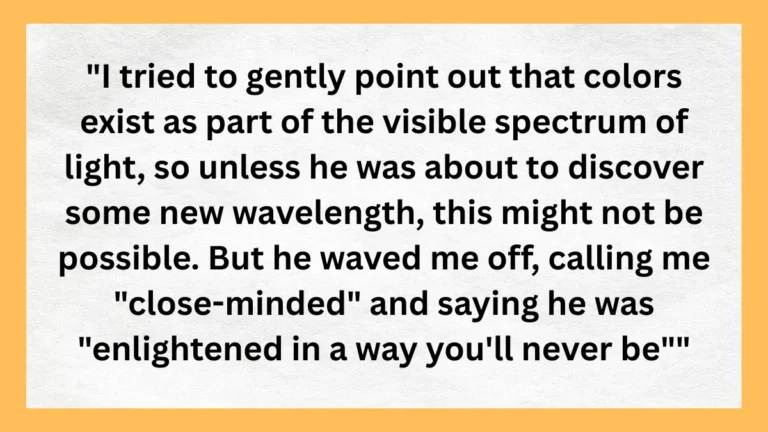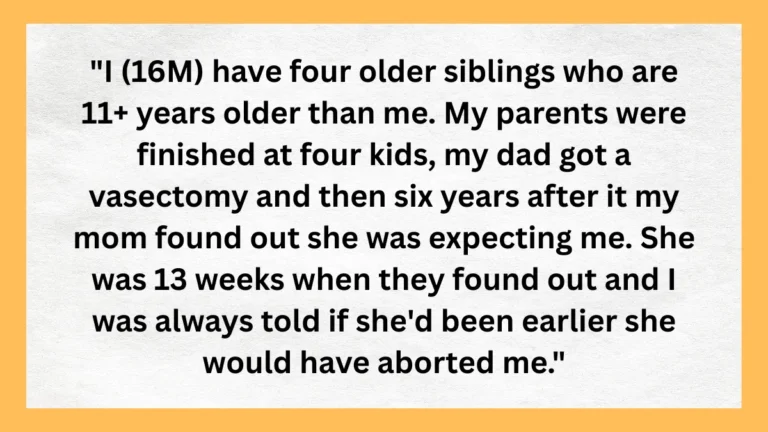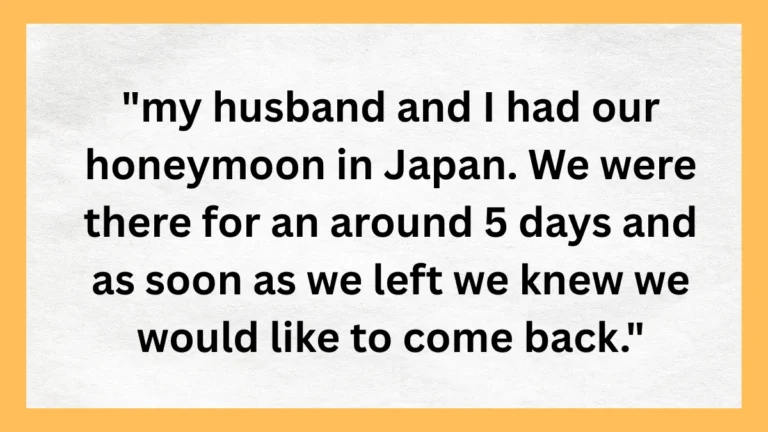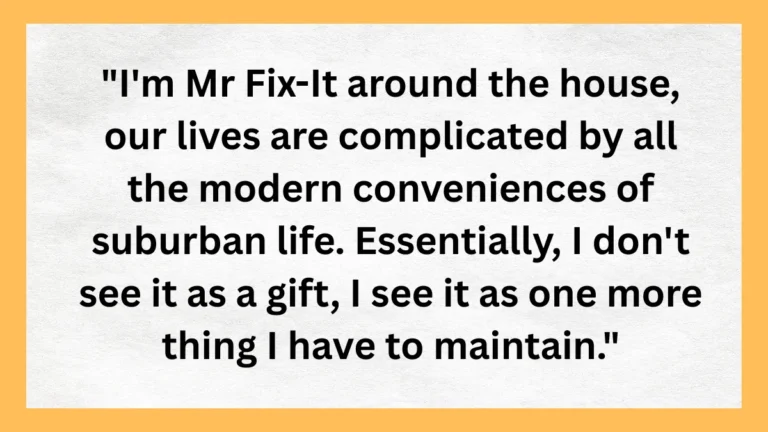After 22 Years of Marriage, She Kept Her Inheritance a Secret — Now He Feels Cheated
For 22 years, he stood by her side—providing, supporting, and carrying the weight of their family through every financial storm. She never held a job, relying entirely on his income to build the life they shared. When they were on the brink of losing their home, it was his own inheritance that saved them, covering overdue taxes when no one else could. Now, she’s come into a multi-million dollar inheritance—and refuses to share a single cent.
Her refusal has shaken the foundation of their marriage. It’s not just the money—it’s the silence, the secrecy, the history of never standing up for him during family conflicts, and the emotional gaps that have long gone unspoken. With their relationship already strained and the children caught in the middle, he’s left wondering: after everything he’s given, does her refusal to give back signal the end?
Is this just another fracture—or the final break in a one-sided partnership?
A spouse’s inheritance can offer major financial relief for the entire family.

That is—if they choose to share it, rather than keep it entirely for themselves.
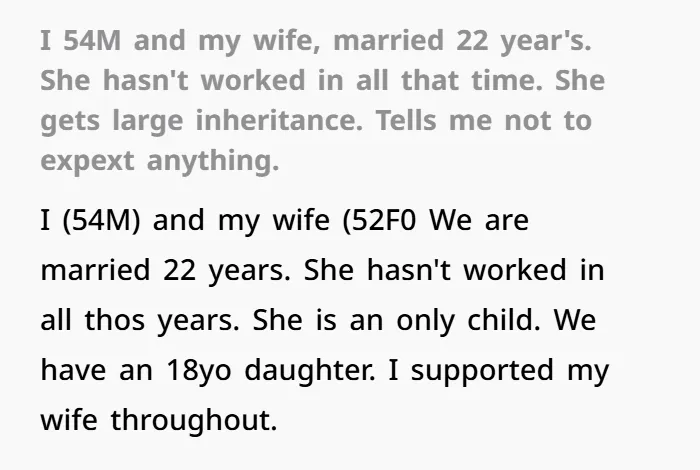




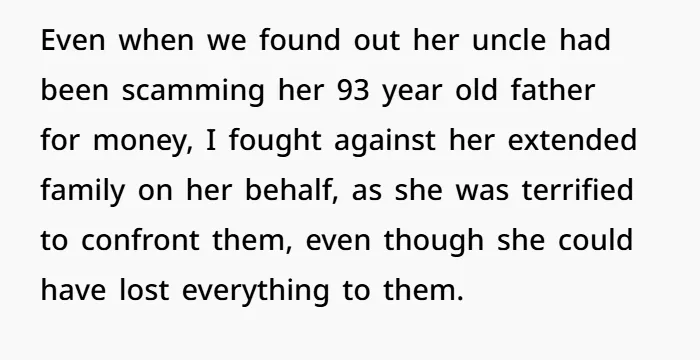

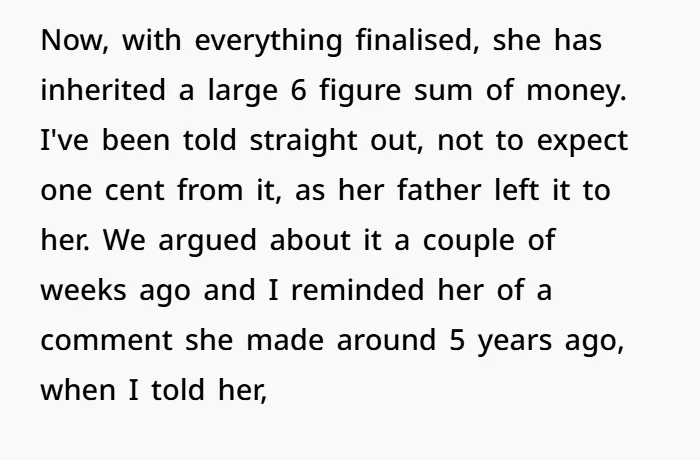

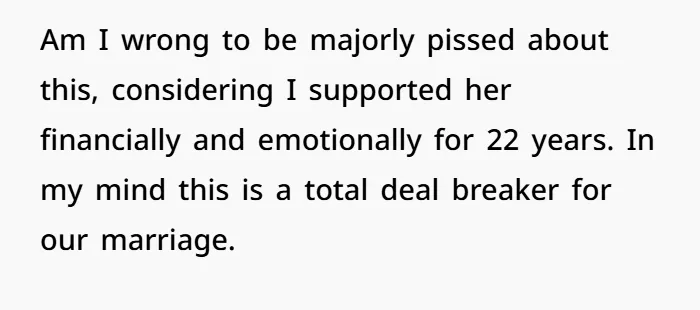
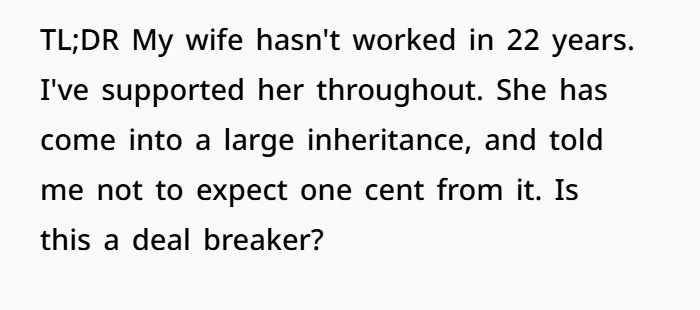
Inheritance and Marriage: Legal vs. Moral Boundaries
In many regions, inheritance is legally considered separate property—unless it’s mixed with joint marital assets. If the wife kept her inheritance in a private account and never contributed any of it to household expenses, then by law, the money is solely hers. However, when a couple has shared decades of financial responsibility and emotional investment, legal definitions often clash with ethical expectations.

Take the husband, for example—he used his own inheritance to pull their family back from the brink of foreclosure, directly protecting his wife and daughter’s future. That selfless act of financial sacrifice makes her refusal to share her newfound wealth feel not just cold, but morally unjust—even if the law says otherwise.

